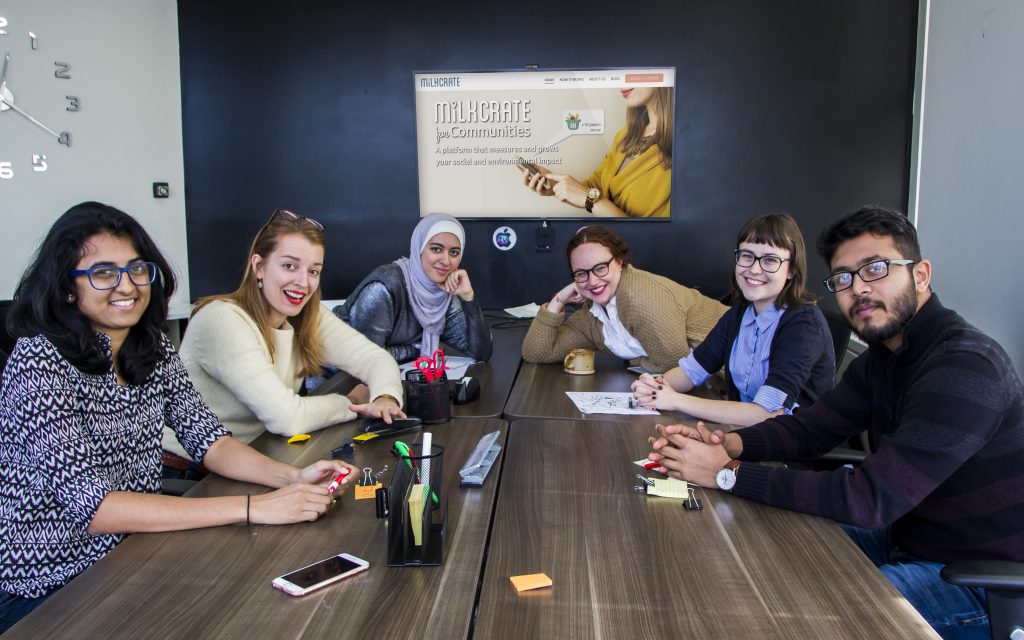A week from Thanksgiving, MilkCrate CEO Morgan Berman published an article titled “A bevy of thank yous and news” in which she announced the company would be pivoting toward a business to-business model under the MilkCrate for Communities platform.
“Free sustainable lifestyle consumer app? Not anymore! Welcome to the world of B2B enterprise software and the CSR [Corporate Social Responsibility] industry,” Berman wrote.
Essentially, the company will now be offering other businesses a chance to turn their communities (think students, staffers, clients, etc.) onto the world of sustainability, by way of the same app MilkCrate has been promoting for two years now. The inaugural customer under the new model is Philadelphia University, which has been running a pilot test since October.
Invitations have been sent to some 170 students (of which 53 have joined the platform so far). Come January, the platform will be released in full to the institution’s 3,500 students.
Non-enterprise members will still have access to the app’s database of sustainable businesses, but much of the gamified functionality (challenges, racking up points) will be saved for users who are part of an organization.
But why the pivot? Berman said there were “pain points” in the original business-to-consumer (B2C) approach she has been stumping for since the company began.
“With the old business model, we were trying to replicate what Yelp had done: getting enough users that we could charge advertising dollars,” Berman told Technical.ly in a telephone call. She said after a year and a half of knocking on doors of cafés and restaurants, outranking Yelp’s popularity was proving difficult.
“The other pain point was reaching an audience,” Berman said. “How do you get lots of people to download an app without a marketing budget? It’s been hard to reach that audience. But now we’re going to have the audience pay to get access to us.” (Re: marketing budgets, we’re reminded of that time Berman worked her way around that by getting some free ads on local taxis.)
We have to give Berman props here, for being honest (and publicly, at that) about how her initial model was the wrong move.
The move isn’t entirely surprising, either, given Philly tech’s propensity for B2B companies.
As the new model plays out, MilkCrate has a bit of runway to watch experiment evolve, in part thanks to a third follow-up investment from Ben Franklin Technology Partners.
https://twitter.com/morganberman/status/798525331888082944
And though it remains to be seen how much traction MilkCrate’s gamified approach to corporate social responsibility can yield, Berman thinks she’s on the right track.
“It’s such a nice feeling to be on the other side of the entrepreneurial mountain,” she said.
MilkCrate’s pivot is a lesson in knowing when something’s not working







